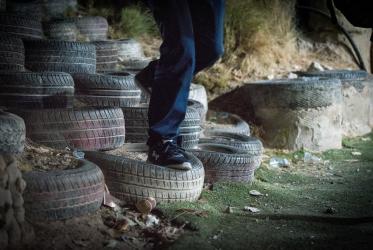Displaying 1 - 20 of 897
Is health the same for all?
17 April 2024
WCC, WHO commemorate 50 years of collaboration
04 April 2024
Voice of churches vital during UN women’s rights talks
28 March 2024
Des mots de ténacité résonnent dans les décombres
25 March 2024










